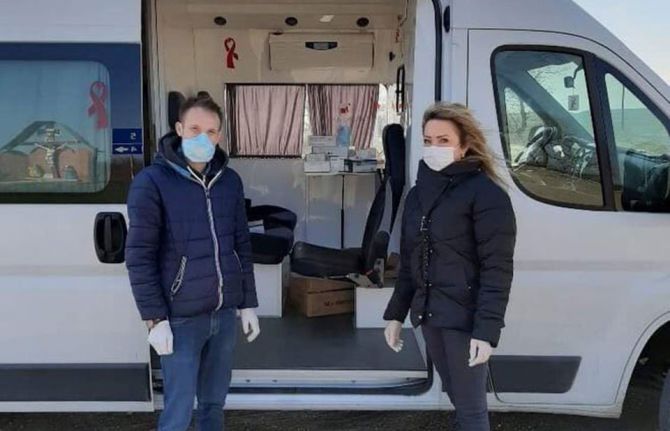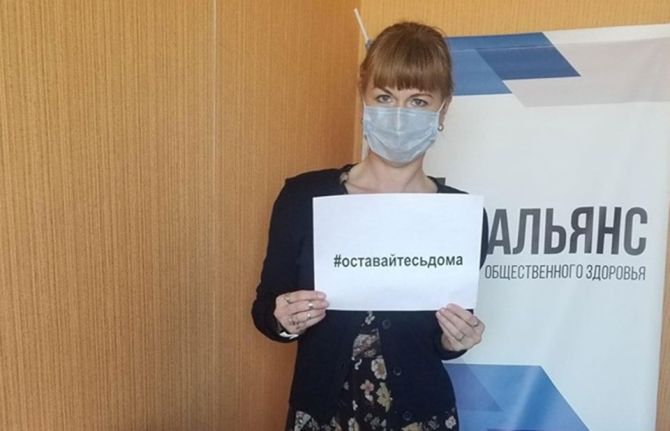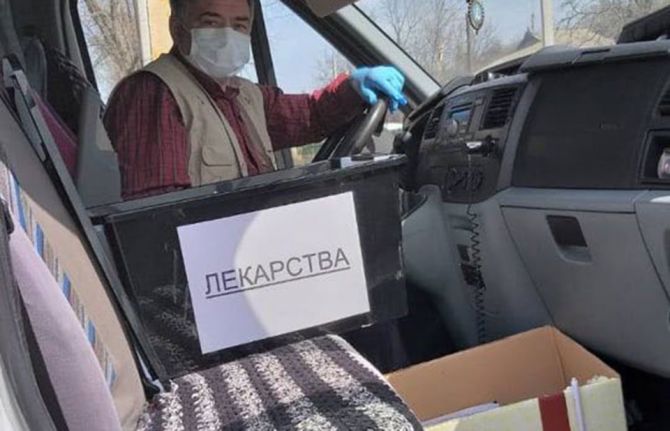



Feature Story
People living with HIV in the Republic of Moldova to receive free home delivery of antiretroviral therapy
02 April 2020
02 April 2020 02 April 2020From 17 March, following the government’s declaration of a state of emergency in response to the COVID-19 pandemic, around 800 people living with HIV in the Republic of Moldova have been receiving antiretroviral therapy at home for free.
A team of social workers and people from the four regional centres for people living with HIV are ensuring the timely delivery of the medicines and are giving information on protection against COVID-19. The social workers, trained by the World Health Organization, explain how to prevent the transmission of the coronavirus, identify its symptoms and take the necessary action in the event that people contract COVID-19.
The emergency measures put in place by the government will initially last until 15 May and include limitations on people leaving their homes except for going to work, buying medicines and food and walking their pets.
AIDS activists agree that the decision will help to avoid the risks encountered by people living with HIV associated with travelling by public transport and going to health centres to get their medication. Most importantly, it will help to avoid interruption of HIV treatment.
“We had to find the most effective solution to this problem, and we are proud that the representatives of the national AIDS programme found a solution,” said Ruslan Poverga, General Director of the Positive Initiative. “The medical sector, social services and nongovernmental organizations are doing everything possible to provide people living with HIV with access to treatment and reduce their risk of coronavirus disease.”
In the Republic of Moldova, more than 6000 people living with HIV are receiving HIV treatment, which they usually get from eight treatment facilities around the country, including prisons. In order to provide the medicines in people’s homes, the National HIV Programme Management Unit developed an algorithm to assess the risk of people living with HIV not being able to access their medicines, taking into account distance from the treatment facilities.
Identifying an efficient solution and obtaining all necessary political support and approval, as well as designing the algorithm and starting the implementation of the programme within one week of work, was made possible owing to the leadership of the Ministry of Health, Labour and Social Protection, the National HIV Programme Management Unit and the Positive Initiative. UNAIDS and the World Health Organization bureau in the Republic of Moldova provided guidance and technical and financial support to ensure the efficient implementation of the initiative.
“The delivery of antiretroviral medicines to people living with HIV in remote, rural and other areas of the Republic of Moldova, where there are no HIV treatment centres, through the involvement of nongovernmental organizations and regional centres for people living with HIV, is an amazing solidarity and mobilization effort by all partners,” said Svetlana Plamadeala, UNAIDS Country Manager for the Republic of Moldova.


